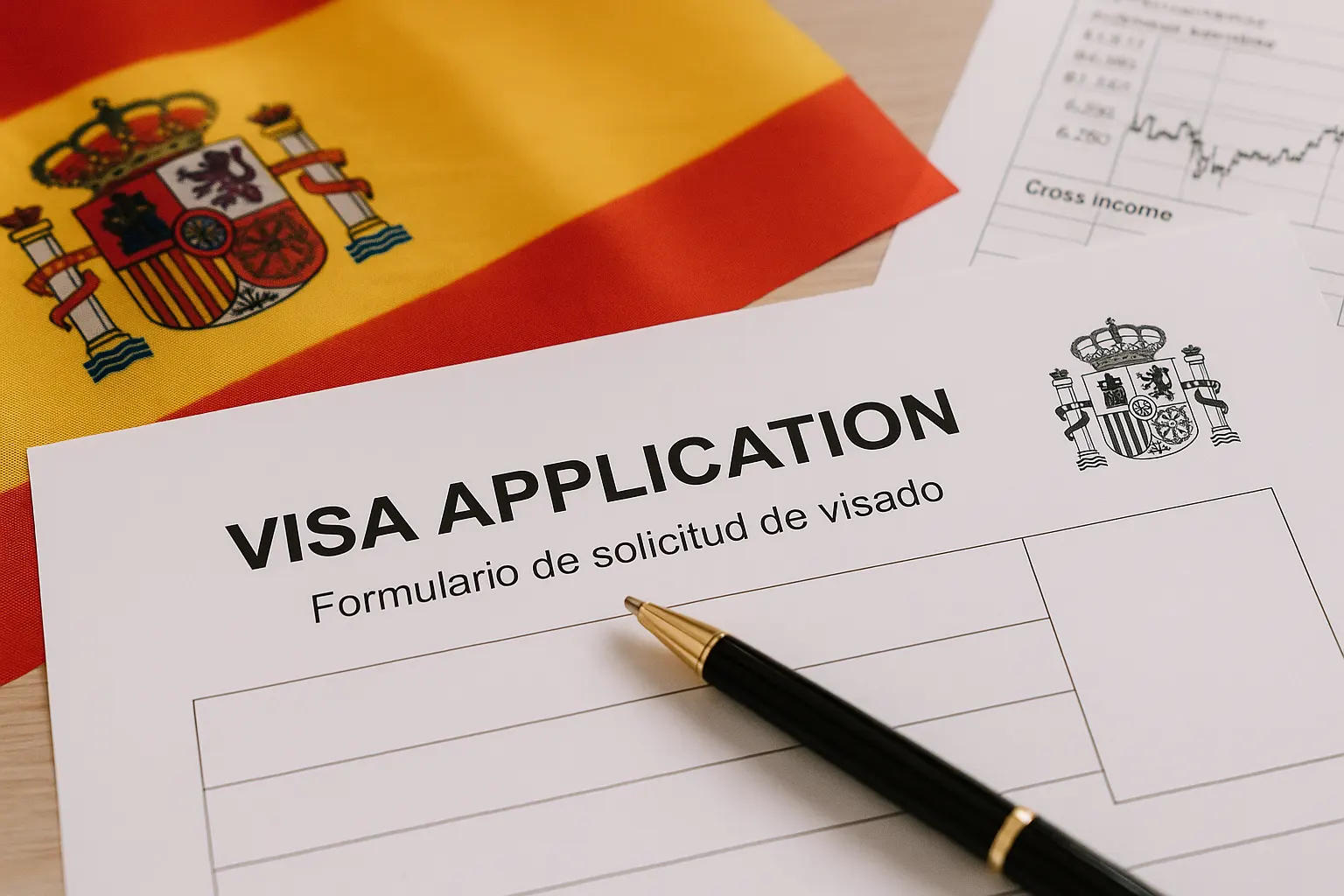Digital nomad visas are specialized permits designed to allow remote workers to legally live and work in a foreign country for an extended period. These visas cater to professionals who leverage technology to perform their jobs independently of location.
Japan and Spain have emerged as prominent destinations for digital nomads, each offering distinct advantages. Japan appeals with its rich culture, advanced infrastructure, and high living standards. Spain attracts with its favorable climate, vibrant lifestyle, and evolving visa policies targeting remote workers.
This article evaluates the Japan Digital Nomad Visa vs Spain Digital Nomad Visa by examining key factors such as eligibility, application process, income requirements, healthcare provisions, taxation, and quality of life. Understanding these elements helps prospective applicants determine which visa aligns best with their professional needs and personal preferences.
For those considering a move to Spain, it’s essential to understand the nuances between various visa options. For instance, the Spain Startup Visa vs Digital Nomad Visa presents key differences that could influence one’s decision based on their business or remote work lifestyle. Furthermore, a comparison between the Digital Nomad Visas of Spain and Portugal can provide additional insights for potential applicants.
Another important aspect is understanding the distinction between the Digital Nomad Visa and Non-Lucrative Visa in Spain, which could help in making an informed choice based on one’s remote work needs. Lastly, considering the cost comparison between Spain and Portugal for digital nomads can aid in budgeting for the move.
Japan Digital Nomad Visa Overview
The Japan digital nomad visa was introduced to attract remote workers seeking a unique blend of traditional culture and modern infrastructure. This visa allows a stay of up to 6 months, providing an opportunity for professionals to experience Japan while maintaining their employment abroad.
Eligibility Criteria
Applicants must meet specific requirements, including:
- An annual income of approximately $67,328 or higher.
- Proof of stable remote employment or business activities outside Japan.
- Non-Japanese nationals without permanent residency status in Japan.
Required Documents
To apply, candidates need to submit several key documents:
- Certificate of Eligibility (COE) issued by the Japanese immigration authorities.
- A valid remote employment contract or proof of self-employment outside Japan.
- Evidence of international health insurance coverage that protects against medical expenses during the stay.
Application Process and Timeline
The application is submitted through Japanese embassies or consulates abroad. Electronic submission options are limited, making physical submission necessary in most cases. The processing time ranges from 30 to 60 days, depending on the applicant’s country of origin and completeness of documentation.
Understanding these requirements and preparing documents carefully can streamline the process, helping digital nomads access Japan’s innovative work environment and rich cultural landscape within a manageable timeframe.
Overview of the Spain Digital Nomad Visa
The Spain digital nomad visa was introduced in 2023, targeting remote workers seeking extended stays. The visa grants an initial residence permit valid for 12 months, with options to extend up to a total of five years. This duration supports sustained remote work while allowing time for integration into Spanish society.
Income Requirements
Income requirements set a clear financial threshold: applicants must demonstrate a minimum monthly income of €2,760. Adjustments apply when dependents are involved, increasing the required income accordingly to cover family needs. This ensures applicants maintain financial stability during their stay.
Eligibility Criteria
Eligibility criteria focus on non-EU/EEA citizens who work remotely for foreign companies or operate as self-employed professionals. The visa is designed to attract international talent engaged in digital professions without local employment contracts, emphasizing economic independence and flexibility.
Required Documents
Key required documents include:
- Proof of private Spanish health insurance covering the applicant’s stay
- Criminal record certificates from countries where the applicant has resided in the past five years
- Evidence of remote work, such as contracts or business registration
- Valid passport and completed application forms
Application Process
The application process typically involves submitting documents electronically or through Spanish consulates abroad. Embassies facilitate initial screenings, while further processing is managed by immigration authorities within Spain. This streamlined approach reflects Spain’s commitment to attracting digital nomads efficiently.
Comparing Eligibility and Income Requirements for Japan and Spain Visas
Eligibility Criteria Comparison: Japan Digital Nomad Visa vs Spain Digital Nomad Visa
1. Income Thresholds
Japan mandates an annual income of approximately $67,328, reflecting a higher financial requirement. This could pose a challenge for those seeking digital nomad visas for low-income earners.
Spain sets a monthly minimum income at €2,760, with adjustments based on family size, offering a more flexible income standard.
2. Eligible Nationalities
Japan’s program accommodates a broad range of foreign nationals without strict regional restrictions.
Spain’s visa primarily targets non-EU/EEA citizens, emphasizing remote workers connected to foreign companies or self-employed individuals.
These distinctions in eligibility and income requirements emphasize different applicant profiles suited to each country’s digital nomad framework.
Examining Application Processes and Duration of Stay for Both Countries’ Visas
The application procedures comparison reveals distinct approaches for Japan and Spain digital nomad visas:
- Japan: Requires submission of a Certificate of Eligibility (COE) obtained through a sponsoring entity, followed by visa application at a Japanese embassy or consulate. Electronic submission options are limited, necessitating in-person or postal delivery.
- Spain: Offers a streamlined process with electronic application submission available via consular websites, reducing bureaucracy. Initial visa approval often occurs within 20 days.
Processing times differ significantly:
- Japan’s processing can take 30 to 60 days, largely depending on embassy workload and COE issuance.
- Spain typically completes procedures within 20 days, reflecting faster turnaround aligned with recent digitalization efforts.
Duration of stay granted varies accordingly, influencing nomads’ planning flexibility.
Health Insurance Requirements and Healthcare Access Under Japan vs Spain Visas
1. Japan
Japan mandates international health insurance with coverage of at least JPY 10 million. This high threshold ensures comprehensive protection for digital nomads against costly medical expenses in a country known for its advanced healthcare system.
2. Spain
Spain requires applicants to have private Spanish health insurance. This policy must be valid within Spain and provide access to the country’s healthcare network. However, for those considering broader options, such as relocating to nearby countries, a comparison of Portugal and Spain could provide valuable insights.
3. Healthcare access
In Spain, digital nomads benefit from a well-established public healthcare system once insured privately, offering affordable and accessible services.
In Japan, the medical system is highly regarded globally for quality and efficiency, but public healthcare access may be limited for non-residents, necessitating strong private coverage.
These differences in health coverage reflect each country’s approach to managing medical risk for temporary remote workers.
Taxation Considerations for Remote Workers Choosing Between These Two Countries’ Digital Nomad Programs
Understanding the tax implications overview is crucial when evaluating the Japan digital nomad visa vs Spain digital nomad visa. Tax obligations are primarily determined by residency status in both countries.
Tax Considerations for Spain
In Spain, the tax regime for eligible foreign workers is governed by the Beckham Law. This special tax regime allows qualifying individuals to pay a flat 24% income tax rate on earnings up to €600,000 annually. This can be particularly beneficial for high earners relocating under the digital nomad visa, as it offers potential savings compared to standard tax rates.
Tax Considerations for Japan
In Japan, tax residency is determined by physical presence and intent to reside. Residents of Japan are subject to taxation on their worldwide income, while non-residents are only taxed on income sourced within Japan. It’s important to note that there is no specific digital nomad tax regime in Japan, meaning that the standard Japanese tax rules will apply.
These differences in taxation between Spain and Japan can have a significant impact on financial planning for remote workers. It is essential to carefully consider these factors alongside the visa requirements when making a decision about which country’s digital nomad program to choose.
Quality of Life Factors That May Impact Your Decision Between Japan And Spain As A Digital Nomad
When comparing living standards, there are significant differences that are important for digital nomads. In Spain, the average internet speed is 247.94 Mbps, which is more than double Japan’s 108.52 Mbps. This means that remote workers in Spain can work more efficiently and stay connected easily.
However, other factors like cost of living and work-life balance also matter a lot in making this decision. The cost of living varies greatly between major cities: accommodation prices in Tokyo tend to be higher because it is a global financial center, while Spanish cities such as Barcelona or Valencia have more affordable housing options and different living environments.
These factors affect daily convenience, work-life balance, and budget management, which are all important for long stays under digital nomad visas.
Other Important Aspects To Consider When Choosing Between The Japanese And Spanish Digital Nomad Visa Programs
Other considerations overview highlight practical limitations and opportunities within each visa program:
- Japan: Digital nomad visa holders often face restrictions on opening local bank accounts, complicating financial management. Long-term rental agreements may also be challenging due to visa duration limits and landlord policies.
- Spain: Background checks for applicants are more stringent, reflecting thorough security measures. However, residency rights become more flexible after the initial period, allowing easier access to services and potential transition to longer-term permits.
These factors influence convenience and stability during the stay, impacting the digital nomad experience beyond income and application processes.
Which One Is Better: The Japanese Or The Spanish Digital Nomad Visa?
Choosing between the Japan digital nomad visa vs Spain digital nomad visa depends on personal priorities and circumstances. Consider these decisive factors:
- Length of Stay
- Japan offers a 6-month stay ideal for shorter-term projects or exploratory visits. Spain’s initial 12-month visa, extendable up to 3 years or in case of applying from Spain 3 years residences permit, extendable up to 5 years- suits those seeking longer residency and stability.
- Income Requirements
- Japan’s higher annual income threshold (~$67,328) demands stronger financial proof. Spain’s monthly minimum (€2,760) with family adjustments may be more accessible for varied income levels.
- Residency Flexibility
- Spain allows more flexible residency rights after the initial period, beneficial for digital nomads aiming for extended integration. Japan’s visa is more restrictive regarding activities beyond remote work.
- Application Efficiency and Support
- Spain’s faster processing times and comprehensive support services—including legal and tax advisory—can simplify relocation.
The final verdict hinges on your financial capacity, desired duration abroad, and long-term plans. Those prioritizing extended stays with moderate income may lean toward Spain, while professionals seeking a high-income threshold in a unique cultural setting might prefer Japan.














